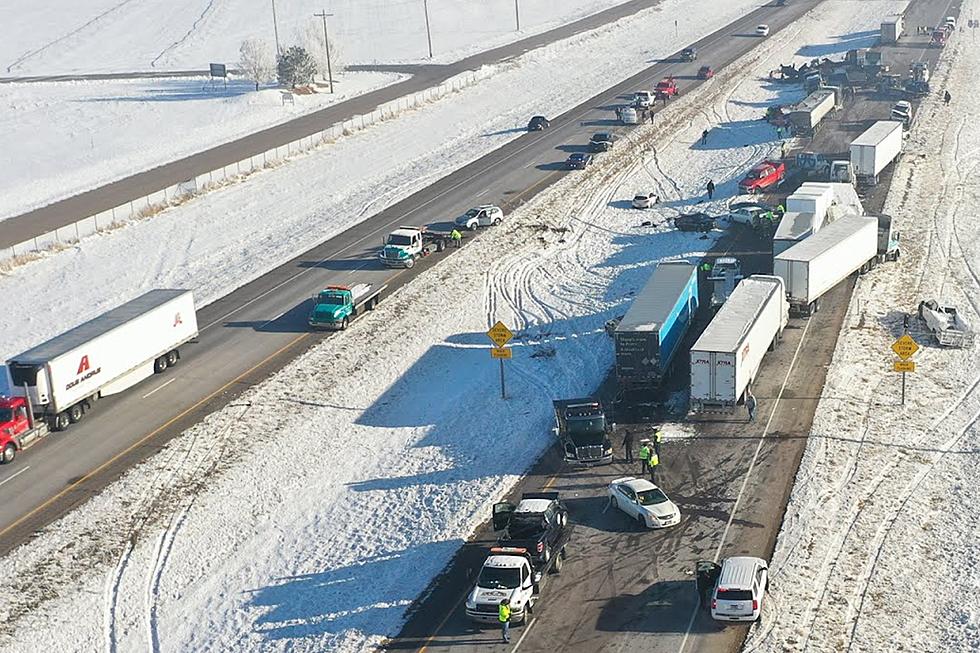
Meeting the Healthcare Needs of Idaho: The Vital Role of Nurse Practitioners
This content was produced in partnership with Bazoom Group.
In the vast landscape of healthcare, meeting the diverse and evolving needs of populations requires a multifaceted approach. In the state of Idaho, where geographical challenges often complicate healthcare access, the role of nurse practitioners (NPs) emerges as crucial.
This article explores the significance of nurse practitioners in Idaho, emphasizing their unique skill set, contributions to primary care and potential to alleviate healthcare disparities.
Understanding the Healthcare Landscape in Idaho
Nestled within the vast expanse of Idaho's picturesque rural landscapes and scattered communities, the state grapples with healthcare challenges that are as distinctive as its breathtaking scenery.
The intricacies of Idaho's geography create formidable hurdles for residents seeking healthcare, particularly in the remote corners where the availability of medical facilities is a rare occurrence. Delving into these challenges is not just an acknowledgment of existing barriers; it's a crucial step in crafting targeted strategies that promise to elevate healthcare delivery and outcomes for every Idaho resident.
Adding to the complexity is the uneven distribution of healthcare resources across the state, highlighting the imperative for nuanced, region-specific approaches. Ensuring equitable access to quality healthcare services demands a thorough comprehension of Idaho's diverse healthcare landscape.
It's a call to action that beckons a commitment to tailored interventions, acknowledging the distinctive needs of urban and rural populations alike. In navigating these healthcare intricacies, Idaho stands at the threshold of a transformative journey toward a more accessible and responsive healthcare system.
The Role of Nurse Practitioners
Nurse practitioners are the dynamic force driving positive change in the healthcare system, acting as advanced practice registered nurses equipped with specialized education and training. Beyond their pivotal role in health promotion, disease prevention and the management of acute and chronic conditions, these healthcare professionals bring a holistic touch to their practice, extending their services to encompass patient education and counseling.
In the vibrant tapestry of diverse communities, nurse practitioners stand out as versatile healthcare providers, addressing the intricate and varied needs of individuals. Against the backdrop of Idaho's healthcare landscape, marked by geographical hurdles and pockets of underserved populations, nurse practitioners emerge as indispensable champions for closing gaps in primary care delivery.
Their ability to deliver not just accessible but high-quality services becomes a beacon of healthcare excellence, not only enhancing immediate outcomes but also playing a pivotal role in fostering preventive measures. In essence, nurse practitioners become architects of healthier futures, contributing significantly to the overall health and well-being of Idaho residents.
Primary Care and Nurse Practitioners
Nurse practitioners play a vital role in bolstering the foundation of a robust healthcare system through their significant contribution to delivering primary care services. In essence, primary care serves as the cornerstone, prioritizing preventive measures, early detection and effective management of prevalent health issues. In the state of Idaho, where specific regions grapple with a shortage of primary care providers, nurse practitioners emerge as instrumental in addressing this healthcare gap.
Their ability to offer cost-effective and timely healthcare services becomes particularly noteworthy in these underserved areas, ensuring that residents receive comprehensive and accessible care tailored to their unique needs. Moreover, the versatile skill set of nurse practitioners allows them to navigate the intricate landscape of primary care, catering to the diverse healthcare demands of Idaho's population.
Nurse Practitioners in Rural and Underserved Areas
The distribution of healthcare facilities in Idaho presents a significant challenge, especially in rural and underserved areas. Nurse practitioners, skilled in independent and collaborative care, are well-suited to address the unique healthcare needs of these communities.
Their ability to offer a continuum of care, from routine check-ups to managing complex conditions, improves healthcare accessibility and outcomes. Furthermore, NPs specialize in preventive care, emphasizing health promotion and disease prevention, crucial for addressing specific health challenges in rural areas.
Their capacity for patient education empowers individuals in these regions to actively participate in their healthcare, promoting a proactive approach to well-being. Additionally, the flexibility of nurse practitioners in adapting to local contexts and embracing community-based healthcare models contributes significantly to overcoming geographical barriers that may impede access to essential services.
Conclusion
Meeting the healthcare needs of Idaho demands innovative and inclusive strategies, with nurse practitioners playing a pivotal role at the forefront of this endeavor. Their unique skill set, which encompasses advanced clinical knowledge and a patient-centered approach, along with their emphasis on primary care, enables them to address a spectrum of health concerns. Additionally, their adeptness in navigating rural challenges, where healthcare access may be limited, underscores their adaptability and commitment to reaching underserved populations.
By recognizing and supporting the indispensable role of nurse practitioners, Idaho can take a significant step towards achieving a more equitable, accessible and high-quality healthcare system for all residents.



